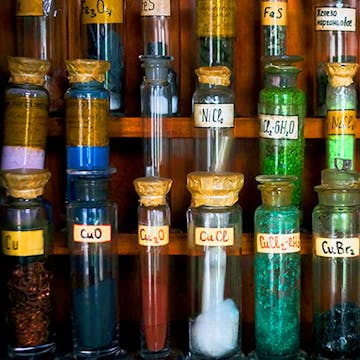

Неорганическая химия
Введение в химию элементов (Inorganic chemistry: Introduction to chemistry of the elements)

Вы растеряны? Утонули в море фактического материала по химии элементов? Хотите уметь предсказывать их свойства? Понять, каких реакций от них можно ожидать? Тогда этот курс для Вас. На основании периодического закона Д.И. Менделеева и современных...
Read more
Good to know
Save this course
Reviews summary
Elementary inorganic chemistry
Activities
Career center
inorganic chemist
Materials Scientist
Geochemist
Chemical Engineer
Environmental Scientist
High School Chemistry Teacher
Forensic Scientist
Test Engineer
Science Writer
Technical Writer
Patent Attorney
Technical Consultant
Sales Engineer
Product Manager
Venture Capitalist
Reading list
Share
Similar courses
OpenCourser helps millions of learners each year. People visit us to learn workspace skills, ace their exams, and nurture their curiosity.
Our extensive catalog contains over 50,000 courses and twice as many books. Browse by search, by topic, or even by career interests. We'll match you to the right resources quickly.
Find this site helpful? Tell a friend about us.
We're supported by our community of learners. When you purchase or subscribe to courses and programs or purchase books, we may earn a commission from our partners.
Your purchases help us maintain our catalog and keep our servers humming without ads.
Thank you for supporting OpenCourser.

